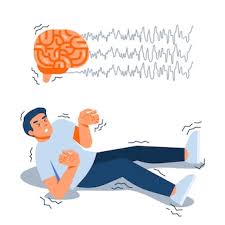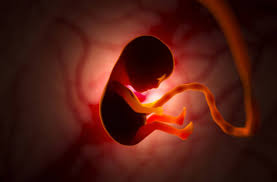Caffeine, a popular stimulant found naturally in coffee and tea and added to energy drinks and sodas, provides a much-needed boost when we're feeling tired. While it provides a fast energy boost and has numerous health benefits, its use raises serious concerns about safety and ideal dosage. This article investigates the effects of caffeine on the human body, the health consequences of its usage, and an overview of coffee costs and types in various areas.

Coffee Varieties in India:
India grows both Arabica and Robusta coffee beans, primarily in Karnataka, Kerala, and Tamil Nadu.
Arabica Coffee: Coorg (Kodagu) Coffee: Known for its mild flavor and fragrant characteristics, with a smooth body and subtle acidity.
Chikmagalur Coffee: Known for its well-balanced flavor and rich aroma.
Wayanad Coffee is a robust and full-bodied coffee with a slightly bitter taste, commonly used in espresso blends.
Tamil Nadu coffee includes the Shevaroy Hills type, which is recognized for its distinct flavor profile and robust body.
Coffee Prices in India:
Coffee prices differ depending on type, quality, and locality.
Arabica coffee costs ₹400 - ₹700 per kilogram (roughly $5 - $9 per pound).
Robusta coffee costs ₹200 - ₹400 per kilogram (about $2.50 - $5 per pound).
Coffee Consumption Trends:
India's coffee culture is fast changing, with urban consumers and a thriving café culture. Traditional filter coffee remains popular in South India, but metropolitan regions witness an increase in specialty cafés offering a variety of brewing methods.

Global Recognition:
India's coffee is sold to more than 50 nations, with a growing emphasis on specialty coffee, which commands high prices globally.
Challenges and Opportunities:
Challenges include climate change and competition from established coffee-producing regions.
Opportunities: The growing domestic market and emphasis on sustainable, organic production practices increase the desirability of Indian coffee.
Traditional vs. Modern Coffee Culture:
Traditional Café Culture: South India has a long history of filter coffee, which is often brewed with a blend of Arabica and Robusta beans. This coffee is made through a metal filter and served with milk and sugar. South Indian filter coffee's distinct flavor has a devoted following and is a household staple.
Modern Café Culture: Coffee shops and specialty cafés are popping up in cities, offering a variety of brewing methods from espresso and cappuccino to pour-over and cold brew. These outlets appeal to a younger, more varied audience seeking high-quality coffee experiences.

The Effects of Caffeine and Their Science:
Adenosine, a neurotransmitter that encourages relaxation and sleep, is blocked by caffeine. Caffeine keeps us awake and focused by blocking adenosine from attaching to its receptors. It also raises the amounts of other neurotransmitters that improve physical performance and alertness, such as dopamine and adrenaline.

On the other hand, excessive caffeine usage can have unfavorable side effects such as agitation, nausea, anxiety, and disturbed sleep. Severe instances may result in palpitations and other cardiovascular problems. For healthy people, the European Food Safety Authority suggests a daily maximum intake of 400 mg or around four cups of coffee.

Health Benefits and Risks:
Moderate coffee use (two to three cups per day) has been linked to a variety of health advantages, including a reduced risk of type 2 diabetes, some malignancies, and neurological disorders such as Alzheimer's.
Coffee's bioactive components, such as chlorogenic acid, are antioxidants and anti-inflammatory, which contribute to its beneficial effects.
Interestingly, coffee has been shown to improve physical performance, with one research revealing a 1.7% increase among amateur cyclists. Additionally, coffee drinking has been related to a lower incidence of depression, particularly among women.
Excess caffeine consumption, particularly in energy drinks containing caffeine and other stimulants, can be harmful to one's health. These hazards include heart arrhythmias, high blood pressure, and neurological problems such as panic episodes and seizures.

Timing and moderation:
Caffeine should be consumed at the right time and in moderation for best results. Caffeine use early in the day can assist avoid sleep problems, while spreading it out throughout the day can help prevent feelings and anxiety.
According to research, waiting 90 minutes to two hours after waking up before drinking your first cup of coffee allows adenosine to clear from your receptors, making caffeine more potent. Due to potential dangers to fetal development, pregnant women should limit their caffeine intake to 200 mg per day. Breastfeeding moms should exercise caution because caffeine can pass through the breast milk and damage the infant.

Excess turns nectar into poison:
Caffeine has energizing effects and potential health advantages, but these are countered by the risk of overconsumption and individual sensitivity. We can make more informed consumption decisions if we understand how caffeine works and how it affects our health.

Exploring the many coffee cultures and prices around the world deepens one's appreciation for this treasured beverage. Whether you love a powerful Brazilian coffee, a fruity Ethiopian brew, or a classic Italian espresso, moderation, and timing are essential for optimizing caffeine's advantages while limiting its hazards.
With inputs from agencies
Image Source: Multiple agencies
© Copyright 2024. All Rights Reserved Powered by Vygr Media.





















